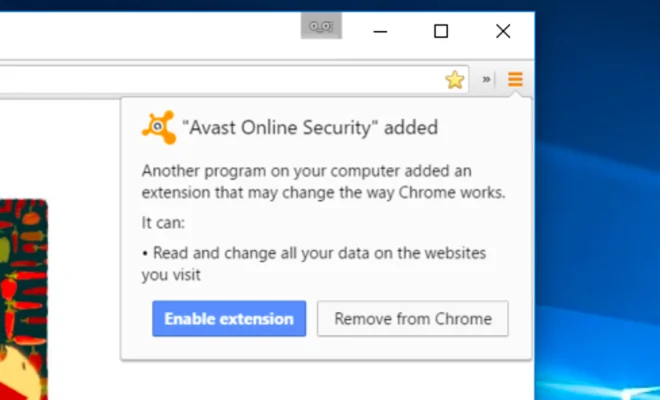Don’t Use Your Antivirus’ Browser Extensions: They Can Actually Make You Less Safe

Antivirus software is a crucial component of overall cybersecurity. Antivirus extensions for browsers are usually optional add-ons that users can install to enhance their protection during web browsing. These extensions scan the websites a user visits and block any potentially harmful scripts, ads or malware.
However, many cybersecurity experts caution against using antivirus extensions due to several reasons:
1. Limited protection: Antivirus extensions can only scan and protect the user’s browser, leaving the rest of the computer and other open applications vulnerable to attacks. It only protects Internet Explorer, Firefox, Chrome or Safari browser and does not protect the user while using other applications.
2. Privacy concerns: In recent years, several antivirus providers like Avast and Kaspersky have been accused of collecting user data and sharing it with third-party partners. Some antivirus extensions have been known to collect users’ browsing history, online behavior, and search queries which could lead to potential privacy violations.
3. Performance issues: Antivirus extensions are known to slow down browsing speed and create compatibility issues with other browser extensions.
4. False sense of security: The use of antivirus extensions can create a false sense of security among users, leading them to believe that they are completely protected from cyberattacks. In reality, no antivirus can guarantee 100% protection against all types of cyber threats.
In summary, antivirus extensions are not a reliable substitute for complete antivirus software. They can provide additional protection but have limited scope and can compromise privacy and performance. It is recommended to use a reputable antivirus software along with safe browsing practices to stay protected from cyber threats.






